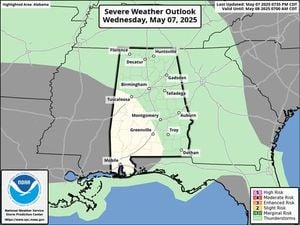As the world marks the 80th anniversary of the end of World War II, Berlin and the small state of Mecklenburg will stand out as the only regions in Germany to enjoy an additional public holiday on May 8, 2025. This exceptional observance highlights a significant historical moment, as it commemorates the unconditional surrender of the German Wehrmacht, marking the end of a devastating conflict that reshaped Europe and the world.
Unlike many European countries such as France, the Czech Republic, and Slovakia, which have declared May 8 a public holiday, Germany has traditionally viewed this date as a day of remembrance, where citizens typically engage in regular work. This year, however, Berlin has made a notable exception, closing shops, schools, and offices to honor the historical significance of the day.
The commemoration will be led by French President Emmanuel Macron, who is set to ascend the Champs-Élysées in Paris, laying a wreath under the Arc de Triomphe and reigniting the flame at the Tomb of the Unknown Soldier. This gesture not only honors the sacrifices made during the war but also serves as a reminder of the importance of peace and reconciliation in Europe.
On May 8, 1945, at 3:00 PM, the bells rang across Europe, heralding the end of the war. General Charles de Gaulle announced the capitulation of Germany in a radio address, marking a pivotal moment in history. The day is often mischaracterized as an armistice; however, it was a clear and unconditional surrender, a fact emphasized by historians and officials alike. The term "armistice" implies a negotiated ceasefire, while the events of May 8 represented a complete capitulation of the Third Reich, ending the state of war immediately.
The origins of May 8 as a day of commemoration can be traced back to Law n°46-934 of May 7, 1946, which established the date for commemorating the victory of 1945. Initially, the day was associated with the celebration of Joan of Arc, but it was officially recognized as a public holiday in 1953. Over the years, political shifts have influenced the observance of this date. In 1975, President Valéry Giscard d'Estaing removed its official status, aiming for reconciliation between France and Germany. However, this decision sparked backlash from veterans and historians, leading to its restoration as a public holiday by President François Mitterrand in 1981.
While May 8 is celebrated in many countries, including France, it is not officially recognized in the United Kingdom, the United States, or Germany. The events of that day are significant not only for the end of the war in Europe but also for the beginning of a complex historical narrative that includes the start of the massacres in Algeria. On the same day in 1945, a demonstration in Sétif escalated into violence, resulting in the deaths of numerous individuals and marking a dark chapter in Franco-Algerian relations.
The commemoration of May 8 serves as a reminder of the sacrifices made during the war and the importance of remembering history to prevent the repetition of past mistakes. Across Europe, ceremonies will take place, with leaders reflecting on the lessons learned from the conflict.
In a poignant twist of history, May 8 also marks the anniversary of Joan of Arc's victory in 1429 when she liberated the city of Orléans. This dual significance adds layers to the observance of the day, intertwining themes of liberation and remembrance.
As Berlin and Mecklenburg prepare for their unique observance, many citizens are taking the opportunity to reflect on the past and the path towards a united Europe. For those in other parts of Germany, the day will serve as a reminder of the historical context that shaped the nation and the continent.
In conclusion, the 80th anniversary of the end of World War II is not just a day of remembrance but a call to honor the sacrifices made and to strive for a future of peace and unity. As Berlin and Mecklenburg celebrate with a public holiday, the rest of Germany and the world are invited to reflect on the lessons of history and the importance of reconciliation.





